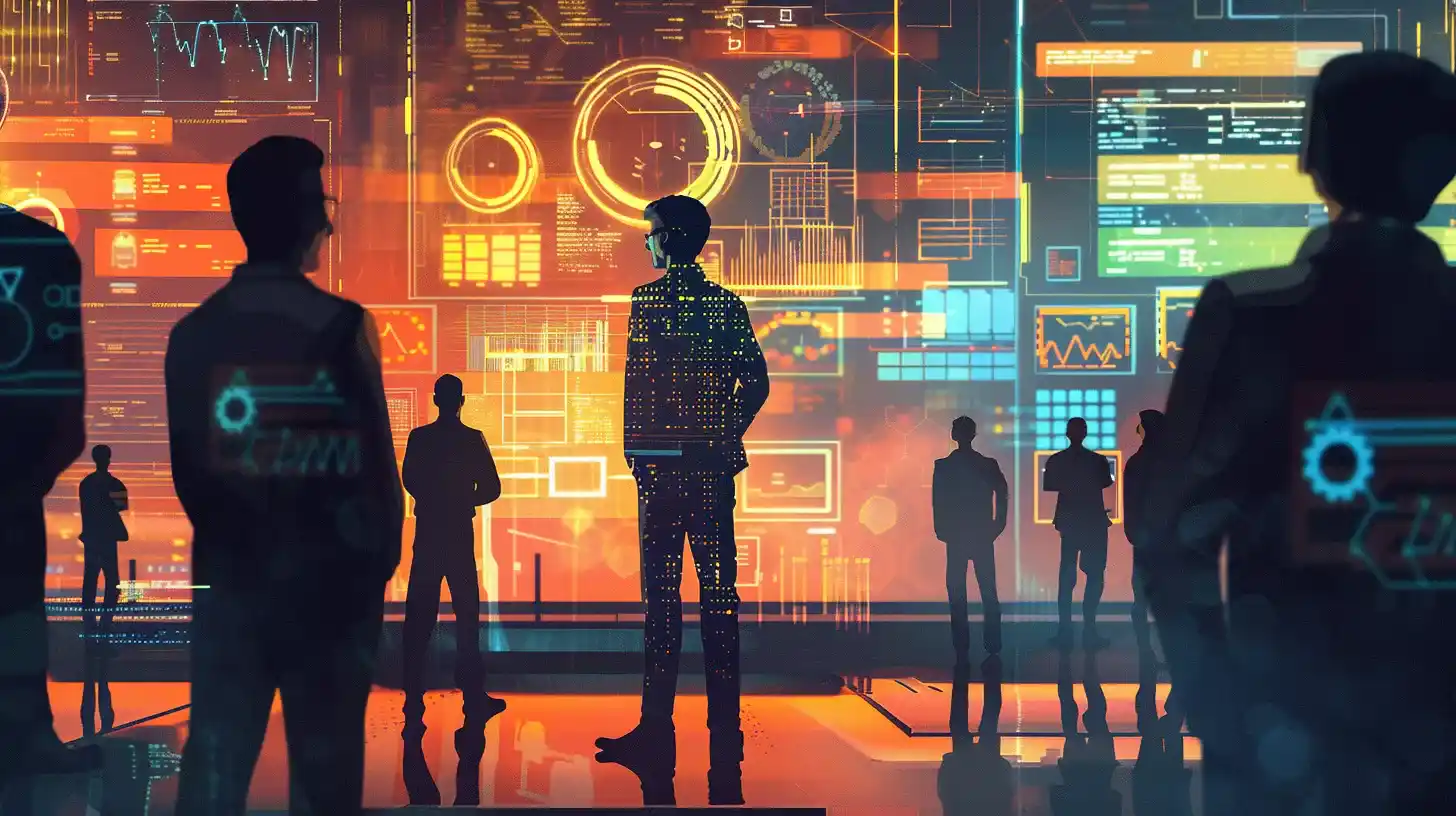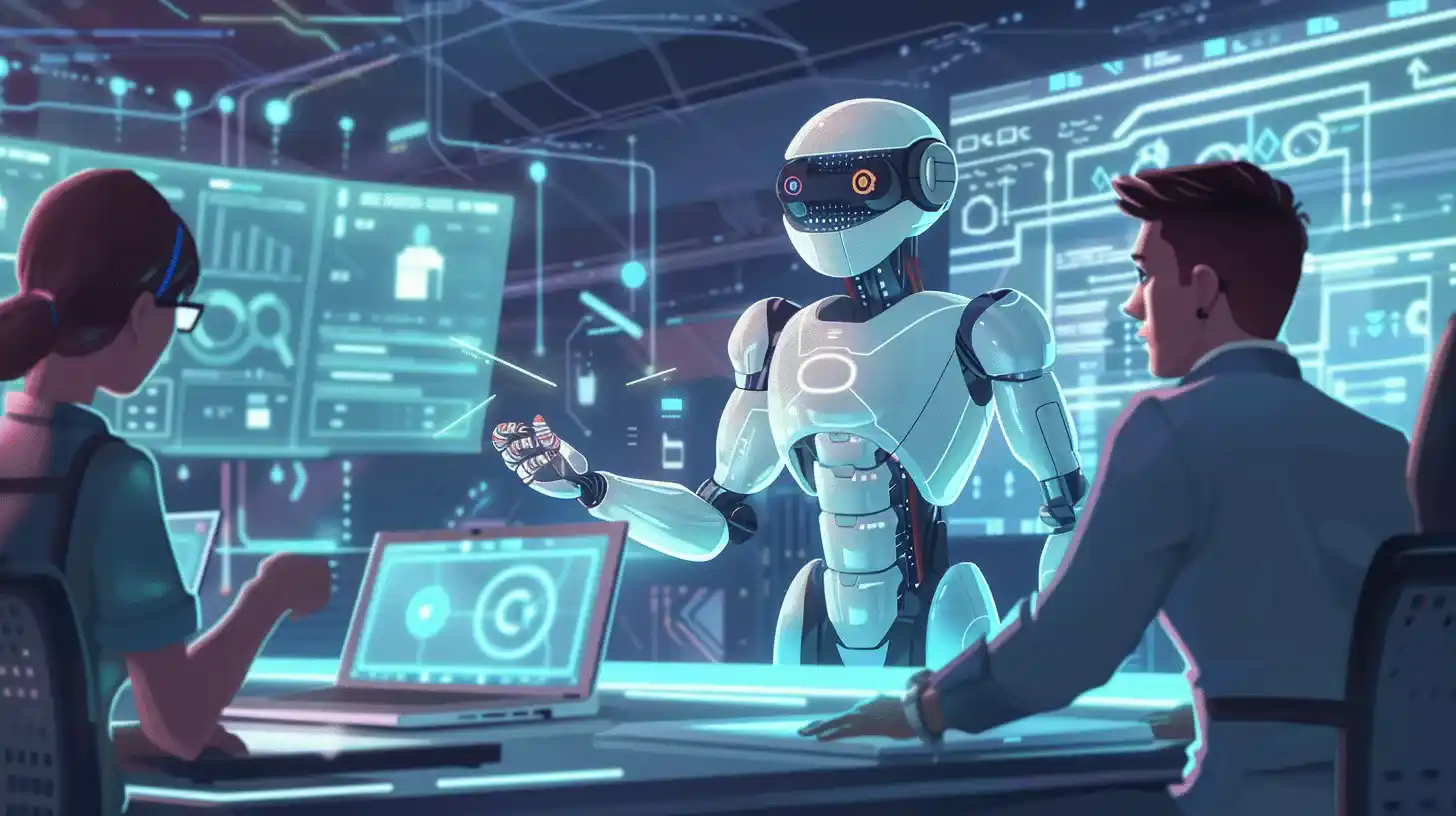Table of Contents
The Dawn of Autonomous AI Engineering
The burgeoning realm of artificial intelligence (AI) is not just enhancing capabilities across myriad sectors; it’s also sparking intense debate about its influence on humanity. Corporations are pouring resources into AI, propelling economists into a fervent quest to decode its ramifications on employment.
Contrary to public trepidation regarding job security, AI’s swift integration seems to be generating, not eradicating, career opportunities, particularly for the youthful and adept. Yet, a shadow looms over potential wage suppression, as indicated by a study disseminated by the European Central Bank.
Devin: The AI Software Engineer
In the wake of ChatGPT’s global sensation, a pioneering venture by Cognition has emerged: Devin was proclaimed as the inaugural fully autonomous AI software engineer. This revelation has sent ripples of apprehension through the tech community, stirring speculation about the fate of technical vocations.

What Devin Brings to the Table
Cognition heralds Devin as an indefatigable, proficient collaborator, primed to either join forces with you or independently spearhead projects awaiting your evaluation. Devin empowers engineers to transcend mundane tasks and aspire to loftier objectives. It’s an entity capable of orchestrating intricate Autonomous AI Engineering feats, infused with the ability to assimilate context, evolve, and rectify errors.
Devin is endowed with a suite of developer tools within a controlled computing milieu, mirroring the arsenal required by its human counterparts. It’s designed for active collaboration, offering real-time progress updates, receptive to feedback, and engaging in cooperative decision-making. Devin’s prowess extends to mastering new technologies, autonomously debugging, and refining AI models.
Autonomous AI Engineering on Software Jobs
Devin’s proficiency has ignited a discourse on its potential repercussions for software employment. Is it a harbinger of obsolescence or a boon for tech professionals? Cognition envisions Devin as a sagacious aide who simplifies the engineer’s role, thereby freeing them to pursue more complex skills.
Perspectives on Devin’s Role
The advent of generative AI tools like GitHub Copilot was already influencing software programming, but Devin escalated this transformation. Jaspreet Bindra of The Tech Whisperer perceives Devin as a paradigm shift in software development, capable of autonomously managing projects, thus resembling an AI employee rather than a mere assistant.
Devin’s reported efficacy in software Autonomous AI Engineering is lauded for its capacity to swiftly adapt and innovate, fostering both trepidation and exhilaration within the industry. Nonetheless, Devin is predominantly viewed as a facilitator, not a rival. Abhimanyu Saxena of Scaler & InterviewBit advocates for embracing these tools as catalysts for growth, potentially democratizing app development beyond the technical sphere.
Heena Kothari of Exotel underscores that coding, while pivotal, constitutes merely a fraction of software creation. The essence of development lies in the orchestration of software functionality, integration, and user-centric design. Devin, therefore, could be instrumental for less intricate projects, enabling engineers to channel their expertise towards grander challenges.

The Verdict on AI’s Job Market Influence
Despite Devin’s remarkable capabilities, it currently poses no immediate threat to tech professionals. However, the evolution of generative AI continues to be a focal point of concern regarding employment across sectors.
The European Central Bank’s research contrasts with prior technological upheavals, revealing that AI exposure has bolstered employment, particularly for high-skilled roles, without significantly impacting lower-skilled positions. Yet, the full extent of AI’s influence on jobs, wages, and socio-economic parity remains an unfolding narrative.
Looking Ahead: Autonomous AI Engineering Role in Our Future
As we stand on the cusp of a new era in AI development, it’s clear that the narrative is still being written. The full impact of AI on employment, wages, and societal structures is a story that will unfold over the coming years. What remains certain is that AI’s role in our future is not just as a tool or a threat but as a transformative force that will redefine the contours of work, creativity, and human collaboration.
In conclusion, while Devin and similar AI innovations present a complex array of challenges and opportunities, they are not the harbingers of a jobless future. Instead, they offer a glimpse into a future where human ingenuity is augmented by artificial intelligence, opening new horizons for growth, innovation, and human potential.
The key lies in harnessing AI’s capabilities responsibly, ensuring that it serves as a bridge to a more prosperous, equitable, and enlightened world.